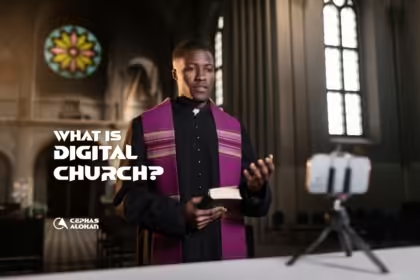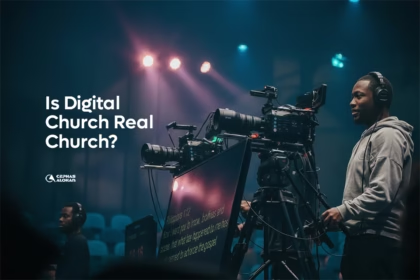This topic is dear to my heart because I’ve often wrestled with questions about the intersection of artificial intelligence and theology. Having conducted digital ministry workshops on leveraging AI for Bible study and streamlining ministry activities, I’m not against the use of AI. Instead, I recognize its potential when used wisely.
However, there must be clear boundaries for using these tools. The Word of God is subject to interpretation by the Holy Spirit, often revealed through spiritual discernment and revelation. This is why Apostle Paul urged believers to pray for the spirit of wisdom and revelation.
The pressing question is: can we truly trust artificial intelligence to interpret the scriptures?
We live in a time of rapid developments in AI and machine learning, so it’s no surprise that these technologies are being applied in theology. Pastors now use AI to generate sermon outlines and analyze ancient texts, with machines taking on tasks once considered uniquely human. But this raises an important and nuanced question: can machines genuinely be trusted with theology?
Theology and the Human Element
Theology, at its core, is the study of the divine and humanity’s relationship with God. It is deeply personal, reflective, and rooted in spiritual interpretations, cultural contexts, and historical traditions. The study and practice of theology require interpretation, and a profound understanding of human complexity, traits that machines inherently lack.
While machines (AI) excel at processing vast amounts of data and identifying patterns, theology is not merely about data. It is about engaging with the mysteries of faith, interpreting the Bible, and discerning who God is and what He says. These are inherently subjective tasks that involve wisdom, and the guidance of the Holy Spirit, qualities that cannot be programmed into an algorithm.

The Role of AI in Theology
Machines have already made significant contributions to theological work. AI tools are being used to:
- Digitize and preserve ancient manuscripts: AI helps scholars translate and analyze historical religious texts, making theological resources more accessible to a global audience.
- Provide insights through data analysis: AI can identify themes, trends, and patterns in scripture or theological writings that might be missed by the human eye.
- Facilitate education and outreach: AI-driven chatbots and applications provide answers to basic theological questions and assist in Bible study.
These applications demonstrate the potential of AI as a tool for theologians rather than a replacement for human engagement with theology.

Trusting Machines: Opportunities and Risks
The question of trust hinges on how machines are used and what is expected of them in the realm of theology. Here are some considerations:
- Accuracy vs. Interpretation: Machines can provide accurate translations or data-driven insights, but they are limited in interpreting spiritual truths. Their analysis is limited to the parameters set by their human programmers, who bring their own biases and limitations.
- Ethical Concerns: The application of AI in theology raises ethical questions. Who controls the algorithms? Are they designed with a particular theological bias? How can we ensure that they respect the diversity and complexity of faith traditions?
- Potential for Misuse: Without proper oversight, AI could be misused to propagate distorted interpretations of scripture or theological concepts. A machine cannot discern between sound doctrine and heresy.
- Augmentation, Not Replacement: Machines should be viewed as tools that augment human capabilities, not as replacements for human theologians. AI can enhance our understanding by handling complex computations and repetitive tasks, allowing theologians to focus on interpretation and application.
A Balanced Perspective
While machines have limitations, dismissing them entirely would overlook their potential to enrich theological work. Instead of asking whether machines can be trusted with theology, perhaps the better question is: how can we responsibly integrate AI into theological practices?
To ensure responsible use, theologians and faith communities must:
- Maintain Human Oversight: Ensure that AI tools are guided and evaluated by knowledgeable theologians.
- Promote Diversity: Use AI tools that respect the richness of different theological perspectives.
- Embrace Collaboration: Cultivate partnerships between theologians, technologists, and ethicists to develop tools that align with ethical and spiritual values.

Machines cannot replace the uniquely human journey of engaging with the divine. However, when used wisely, they can serve as valuable tools in supporting and expanding theological work. The trust we place in machines should be measured and rooted in the understanding that they are our creations, not replacements for the spiritual discernment and wisdom that theology demands. Ultimately, theology remains a divine-human endeavor, one that machines can assist but never fully comprehend or undertake.






